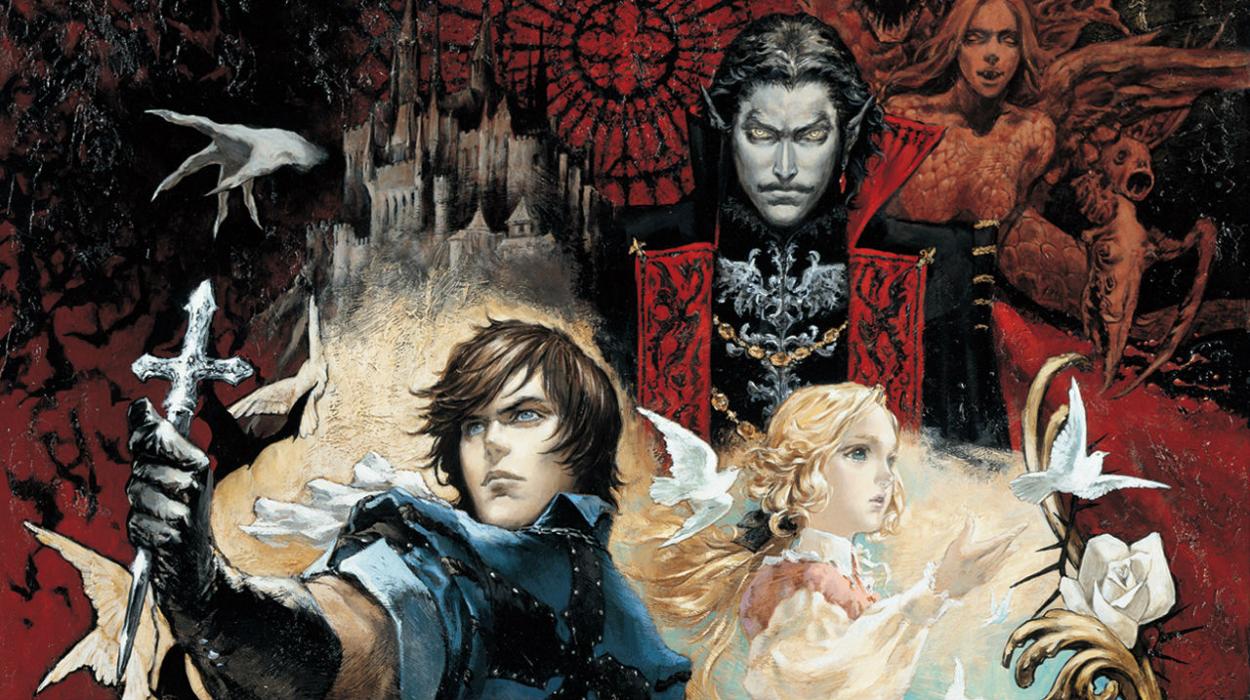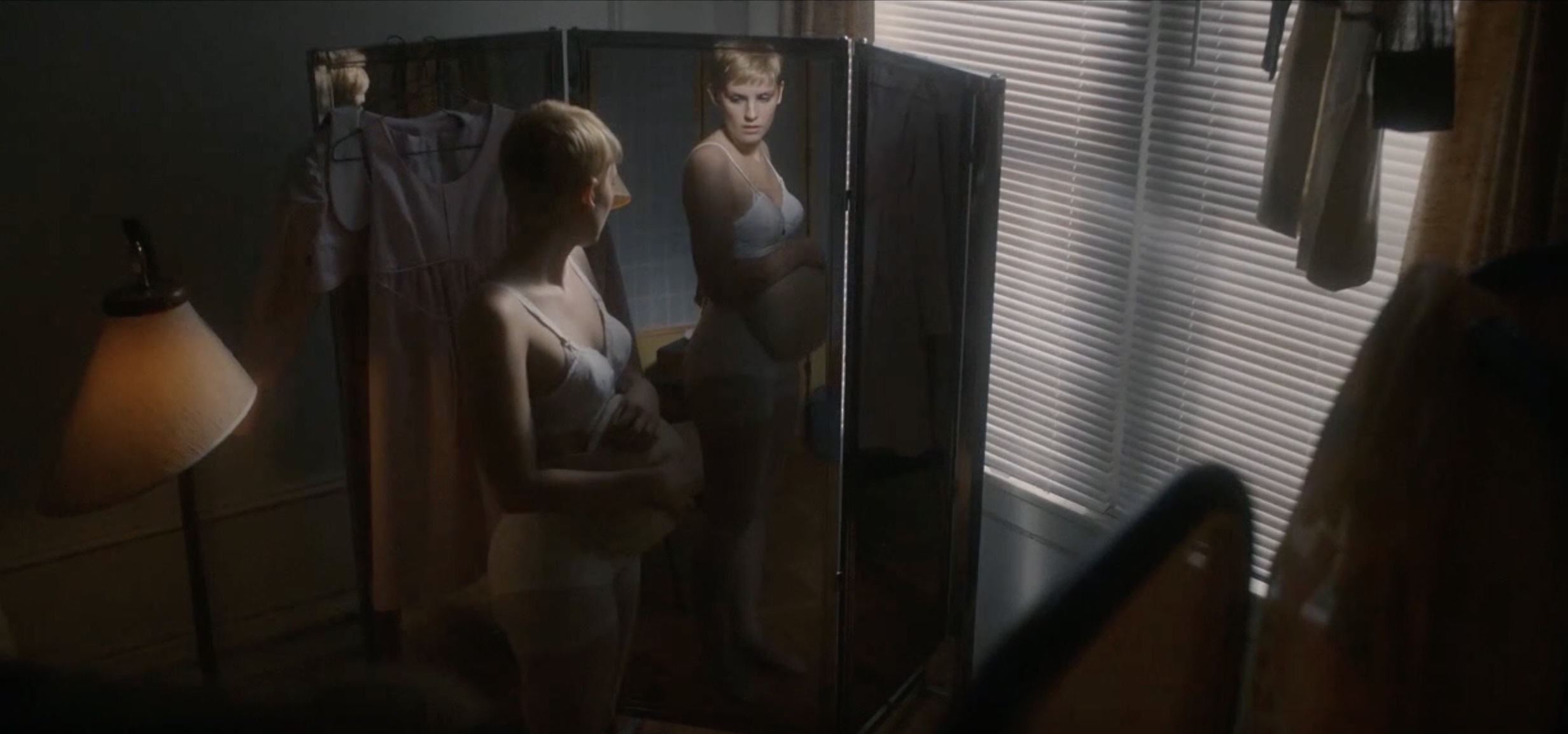Reviews
[Review] ‘Castlevania Requiem’ Brings Two Great Titles to PS4, But Not Much Else

Castlevania has rarely been as prominent as it is right now. The second season of Netflix’s animated series is upon us and has glowing reviews, and in a smart tie-in move, Konami has released two of the series’ best games in one package for PS4 on the same day and christened it Castlevania Requiem.
Castlevania Requiem brings PC Engine title Rondo of Blood and the iconic PS One entry Symphony of the Night exclusively to PS4 and that in itself is a pretty great thing, but it feels like a bit more effort could have gone into this package.
Firstly, what does Requiem actually bring? Well, it brings both games, looking a little cleaner and smoother on a modern console. It brings trophy sets for both games, customizable controls, a strange quick save system, the option to switch between Japanese and English, and it has some fancy borders for the screen. The main takeaway here is that everything is pleasingly clearer, especially items and text.
Essentially, this is the PSP collection from a decade or so ago (including the new voicework that brought to Symphony of the Night) but prettier. I note this now because it’s honestly a real downer for fans expecting a properly revised version of these titles, and likely frustrating for curious newcomers when there’s not so much as a sniff of any quality of life improvements that many retro collections slot in nowadays (and boy, does Rondo of Blood need that). The menu screens are also among the ugliest I’ve seen for some time. I’m baffled as to why they were designed the way they are.

Despite this underwhelming news, Castlevania Requiem is worth it for the experience of the games alone. Rondo of Blood is the lesser known of the two, fronted by Richter Belmont and unlockable character Maria, but this prequel to Symphony of the Night is an underrated gem. There’s shared design with Symphony but plays far more like the Castlevania titles of the NES era. It’s a wonderful marriage of the two styles, and whilst it’s undeniably short (roughly an hour or so) it’s a highly entertaining romp, dripping in goofy Gothic charm.
It’s also rock hard by modern standards and isn’t shy about chucking threats at you at every opportunity. Of the two, it’s the one that you’d have to call an ‘acquired taste’ and its throwback gameplay means it’s aged more than Symphony, but it should gain some new fans with this collection.
Castlevania: Symphony of the Night then. It’s not hyperbole to call it a stone-cold classic, because when people say ‘Metroidvania’ this is the game that made that a word mean something. It reshaped what Castlevania was by blending its base formula with RPG elements at a time where that sort of thing was a rarity rather than the norm. You can level your character (Alucard, Son of Dracula) up, boost stats, equip different weapons and potions, and generally feel like you’re building Alucard’s power over time in a far more natural and satisfying manner. It may seem unspectacular now, but it’s a huge part of why Symphony of the Night still resonates so well years later whilst Rondo of Blood shows its age.
It also has a bloody beautiful soundtrack that is still a treat for the ears today. The only real audio downside to it is that while the voice work is clearer, it’s not quite as entertaining as the original, with key lines shifted and changed (including THAT line). Newcomers aren’t going to care, but it’s another reason for long-time fans to feel a tad disgruntled.

It’s not all that long when compared to many modern Metroidvania-types, yet it leaves you with a thirst for more and the many times I’ve returned to it over the years is entirely down to its slick, challenging cycle of replayability. There’s plenty of nooks and crannies to explore, varying paths to follow, and impressive foes to vanquish and it all adds up to ensure Symphony of the Night is an endlessly rewarding treat.
So the port itself is fine, but clearly not much more than that. While the games look great for their age, they’re simply not designed for modern televisions and it shows. A visual overhaul could have done wonders and truly made Requiem an essential purchase. Instead, we have fairly basic ports of one very good game and another that is in the pantheon of the greats. Given neither are on current-gen consoles before now, there’s merit to this collection for that alone, but it should have been so much more.

Castlevania Requiem review code provided by the publisher
Castlevania Requiem is October 26 on PS4

Reviews
“AHS: Delicate” Review – “Little Gold Man” Mixes Oscar Fever & Baby Fever into the Perfect Product

‘AHS: Delicate’ enters early labor with a fun, frenzied episode that finds the perfect tone and goes for broke as its water breaks.
“I’ll figure it out. Women always do.”
American Horror Story is no stranger to remixing real-life history with ludicrous, heightened Murphy-isms, whether it’s AHS: 1984’s incorporation of Richard Ramirez, AHS: Cult’s use of Valerie Solanas, or AHS: Coven’s prominent role for the Axeman of New Orleans. Accordingly, it’s very much par for the course for AHS: Delicate to riff on other pop culture touchstones and infinitely warp them to its wicked whims. That being said, it takes real guts to do a postmodern feminist version of Rosemary’s Baby and then actually put Mia Farrow – while she’s filming Rosemary’s Baby, no less – into the narrative. This is the type of gonzo bullshit that I want out of American Horror Story! Sharon Tate even shows up for a minute because why the hell not? Make no mistake, this is completely absurd, but the right kind of campy absurdity that’s consistently been in American Horror Story’s wheelhouse since its inception. It’s a wild introduction that sets up an Oscar-centric AHS: Delicate episode for success. “Little Gold Man” is a chaotic episode that’s worth its weight in gold and starts to bring this contentious season home.
It’d be one thing if “Little Gold Man” just featured a brief detour to 1967 so that this season of pregnancy horror could cross off Rosemary’s Baby from its checklist. AHS: Delicate gets more ambitious with its revisionist history and goes so far as to say that Mia Farrow and Anna Victoria Alcott are similarly plagued. “Little Gold Man” intentionally gives Frank Sinatra dialogue that’s basically verbatim from Dex Harding Sr., which indicates that this demonic curse has been ruffling Hollywood’s feathers for the better part of a century. Anna Victoria Alcott’s Oscar-nominated feature film, The Auteur, is evidently no different than Rosemary’s Baby. It’s merely Satanic forces’ latest attempt to cultivate the “perfect product.” “Little Gold Man” even implies that the only reason that Mia Farrow didn’t go on to make waves at the 1969 Academy Awards and ends up with her twisted lot in life is because she couldn’t properly commit to Siobhan’s scheme, unlike Anna.
This is easily one of American Horror Story’s more ridiculous cold opens, but there’s a lot of love for the horror genre and Hollywood that pumps through its veins. If Hollywood needs to be a part of AHS: Delicate’s story then this is actually the perfect connective tissue. On that note, Claire DeJean plays Sharon Tate in “Little Gold Man” and does fine work with the brief scene. However, it would have been a nice, subtle nod of continuity if AHS: Delicate brought back Rachel Roberts who previously portrayed Tate in AHS: Cult. “Little Gold Man” still makes its point and to echo a famous line from Jennifer Lynch’s father’s television masterpiece: “It is happening again.”
“Little Gold Man” is rich in sequences where Anna just rides the waves of success and enjoys her blossoming fame. She feels empowered and begins to finally take control of her life, rather than let it push her around and get under her skin like a gestating fetus. Anna’s success coincides with a colossal exposition dump from Tavi Gevinson’s Cora, a character who’s been absent for so long that we were all seemingly meant to forget that she was ever someone who was supposed to be significant. Cora has apparently been the one pulling many of Anna’s strings all along as she goes Single White Female, rather than Anna having a case of Repulsion. It’s an explanation that oddly works and feeds into the episode’s more general message of dreams becoming nightmares. Cora continuing to stay aligned with Dr. Hill because she has student loans is also somehow, tragically the perfect explanation for her abhorrent behavior. It’s not the most outlandish series of events in an episode that also briefly gives Anna alligator legs and makes Emma Roberts and Kim Kardashian kiss.

“Little Gold Man” often feels like it hits the fast-forward button as it delivers more answers, much in the same vein as last week’s “Ava Hestia.” These episodes are two sides of the same coin and it’s surely no coincidence that they’re both directed by Jennifer Lynch. This season has benefitted from being entirely written by Halley Feiffer – a first for the series – but it’s unfortunate that Lynch couldn’t direct every episode of AHS: Delicate instead of just four out of nine entries. That’s not to say that a version of this season that was unilaterally directed by Lynch would have been without its issues. However, it’s likely that there’d be a better sense of synergy across the season with fewer redundancies. She’s responsible for the best episodes of AHS: Delicate and it’s a disappointment that she won’t be the one who closes the season out in next week’s finale.
To this point, “Little Gold Man” utilizes immaculate pacing that helps this episode breeze by. Anna’s Oscar nomination and the awards ceremony are in the same episode, whereas it feels like “Part 1” of the season would have spaced these events out over four or five episodes. This frenzied tempo works in “Little Gold Man’s” favor as AHS: Delicate speed-runs to its finish instead of getting lost in laborious plotting and unnecessary storytelling. This is how the entire season should have been. Although it’s also worth pointing out that this is by far the shortest episode of American Horror Story to date at only 34 minutes. It’s a shame that the season’s strongest entries have also been the ones with the least amount of content. There could have been a whole other act to “Little Gold Man,” or at the least, a substantially longer cold open that got more out of its Mia Farrow mayhem.
“Little Gold Man” is an American Horror Story episode that does everything right, but is still forced to contend with three-quarters of a subpar season. “Part 2” of AHS: Delicate actually helps the season’s first five episodes shine brighter in retrospect and this will definitely be a season that benefits from one long binge that doesn’t have a six-month break in the middle. Unfortunately, anyone who’s already watched it once will likely not feel compelled to experience these labor pains a second time over. With one episode to go and Anna’s potential demon offspring ready to greet the world, AHS: Delicate is poised to deliver one hell of a finale.
Although, to paraphrase Frank Sinatra, “How do you expect to be a good conclusion if this is what you’re chasing?”















You must be logged in to post a comment.